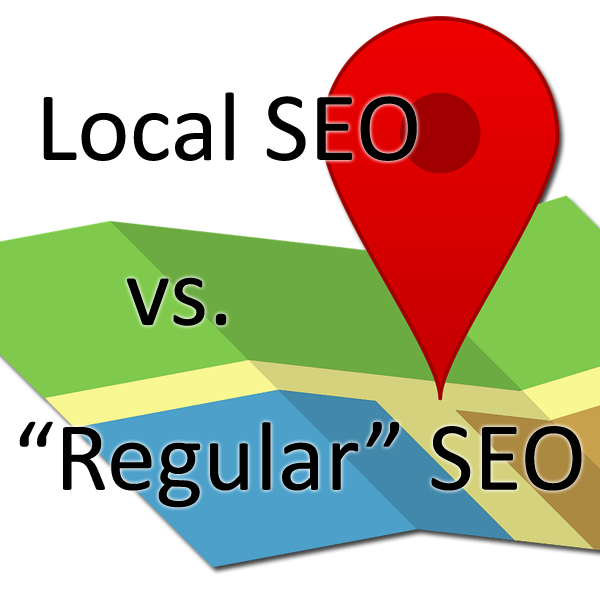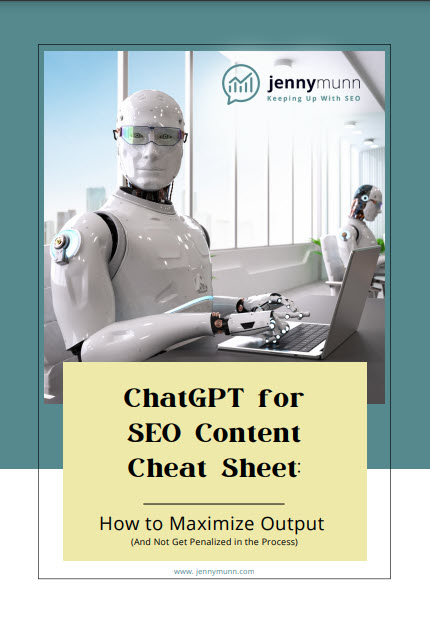 Local SEO has always been a specialty within the broader spectrum of “regular” SEO that I have happily deferred to specialists for. When a business comes to me for SEO help, if the service is unquestionably locally based and that is where their main SEO needs are, I pass those types of requests right along to trusted colleagues.
Local SEO has always been a specialty within the broader spectrum of “regular” SEO that I have happily deferred to specialists for. When a business comes to me for SEO help, if the service is unquestionably locally based and that is where their main SEO needs are, I pass those types of requests right along to trusted colleagues.
But times are a changin’.
Even if a query might have a national/non-localized intent and does not have a geo-targeted term in it, the SERPS (search engine results pages) are increasingly returning localized results and a local map pack prominently on top.
And for branded searches, with the Google My Business info displayed so prominently above the fold on the right, many people rely on the information there and never even go to the website if all they need are hours, address, directions and confirmation the business exists and is not completely sketchy (reviews and photos being sub-consciously noted).
While I’m still a firm believer in handing over tactical Local SEO needs to a Local SEO specialist, with mobile usage only continuing to trend upwards in every industry, Local SEO has now become an important piece of my SEO client audits.
Local SEO: Reinforcing Key Facts to Improve Ranking
At WordCamp Atlanta a couple of weeks ago, I had the pleasure of hearing Rich Owings, a Local SEO specialist, give a talk. For about 45 minutes straight I was taking notes fast and furiously as he covered a ton of ground for local SEO improvement. Below I’ve woven in some of Rich’s tips along with recent Local SEO changes and updates.
Local SEO Overview: 3 Things to Know
Local SEO is a layer that is added on to “regular” SEO. In fact, most of it is dependent upon activities and factors that happen away from your site. Also, about 20% of all search has local intent, and it goes up to 50% on mobile. And don’t forget Bing. It now being the default provider for Firefox and powering the search results for AOL and Yahoo makes it important to claim our listings on Bing places for business.
Don’t forget the NAP (name address phone number) in text, on your site. And not just on your homepage. It should be in text on every page. You should also place your city, state, and business name, as well as main service in the title tag. Consistency of the NAP, as well as the number of, relevancy, and quality of local citations is still critically important.
Citations and links are more important than ever. Somehow listings just “appear” in local directories. You have to go and claim these listings. Look for a link that says “are you the owner” or “manage this listing.” Make sure and use your business domain to claim these instead of Gmail. The Pigeon Algorithm, which hit a few years ago, changed the Local SEO game. It mandated, among other things, that links become more important. So along with citations it’s important to get links from bloggers, partners and suppliers, alumni profiles, industry directories, chambers of commerce, from local sponsorship opportunities, and if you can any .gov or .edu links.
Embracing Reviews (Don’t Ignore Reviews Even If You Want To)
Google very recently removed the requirement for reviews to be tied to a Google+ account.
This is key.
Previously, it was hard for businesses to describe to their clients how and where to leave reviews. Now, the process is much easier.
Customers and clients will still need to log in with a Google account but they won’t have to jump through the hoops of creating a Google+ profile just to leave a review. (It seems Google also fixed a known bug that was preventing users from leaving reviews using a mobile browser if your business had no previous reviews.)
Ask for reviews and embrace them. Even the negative ones. And discipline yourself not to respond in the heat of the moment.
Local SEO On-Page Fundamentals On Your Site
Great content, while a given, cannot be stated often enough (and I know because I still see lackluster content out there in spades).
Implement regular SEO as usual (keywords, content, on-page optimization best practices, engaging media elements, intuitive navigation, internal links, etc.). After that, here are a couple more factors you should include to localize your site:
-NAP and prominent contact information
-Clickable phone numbers for mobile
-Useful information and FAQs
-Directions with mention of any relevant hyperlocal information like street signs and landmarks
-A mobile optimized site (think mobile first) with website speed as optimized as possible on mobile and desktop
-Local schema markup
-Location pages, if you do them, need to be modern and done well (no old school location page SEO or SEO copywriting). Here is another great guide by Search Engine Land to getting this right.
Relevance, Prominence and Distance: Final Words from Google Itself
These 3 factors – relevance, distance and prominence – determine how Google ranks locally. Google has recently expanded its help page to add that you should have as much data as possible in your Google My Business listing and that you need to: 1) verify your business 2) post accurate hours 3) respond and manage reviews and 4) add photos.
While relevance and distance are pretty self-explanatory, this is where national SEO comes into play:
“Prominence is also based on information that Google has about a business from across the web (like links, articles, and directories). Google review count and score are factored into local search ranking: more reviews and positive ratings will probably improve a business’s local ranking. Your position in web results is also a factor, so SEO best practices also apply to local search optimization.”
Your Turn – Got Local SEO Knowledge to Drop?
Got any further tips on Local SEO? Anything you’ve seen that has surprised you? Share with me in the comments below.
Jenny Munn
Latest posts by Jenny Munn (see all)
- Four 2024 SEO Planning Tips for World Domination - November 16, 2023
- SEO Planning Tip: Why You Need a CYA Clause - November 3, 2023
- How Long Does SEO Take to Show Results? (Updated for 2023) - August 9, 2023


